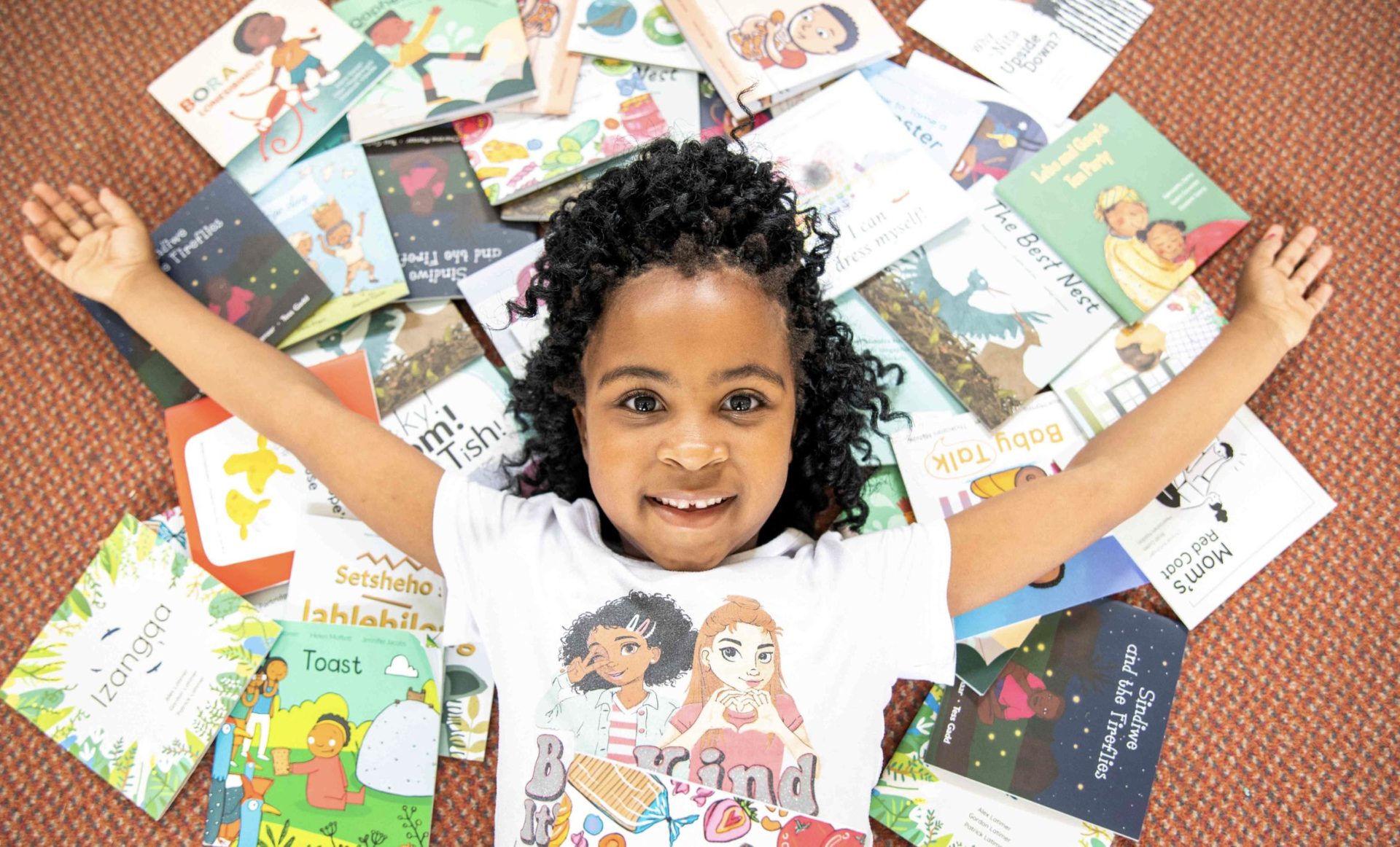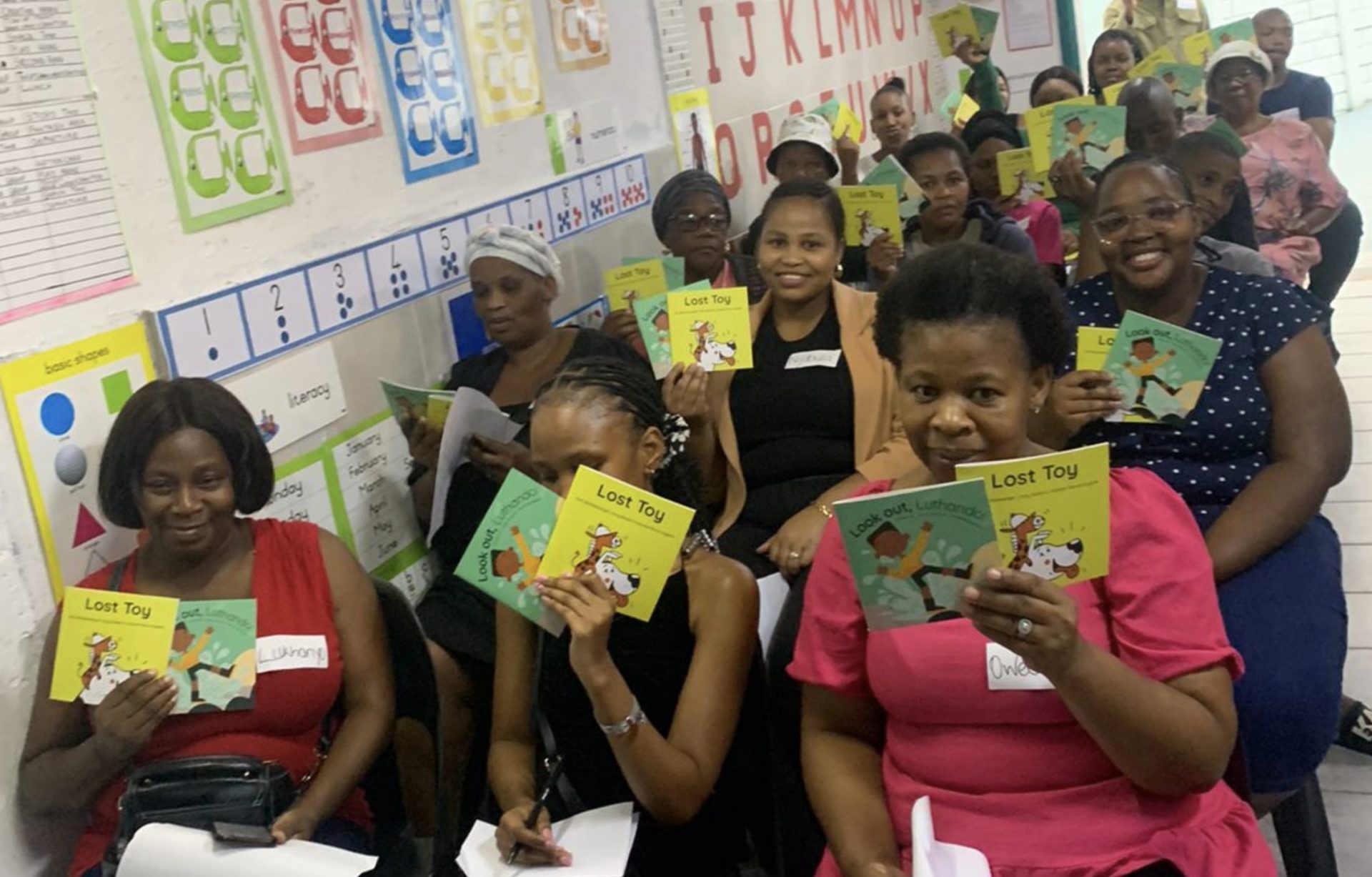In a huge effort to cultivate a culture of reading for young children across South African homes, the ‘Growing Readers with Books’ Project has given over 9000 books to youngsters, whilst working to engage parents on the importance of reading from a young age!
South Africa (23 April 2024) — Today bookmarks World Book and Copyright day! In light of this, an exciting project— ‘Growing Readers with Books’ has some page-turning good news to share when it comes to South Africa’s literacy and Early Childhood Development efforts.
Research shows that book ownership is vital to holistic early development as well as lifelong academic and economic success. But, as we know in South Africa, literacy levels have been worrying, while book ownership rates are critically low, especially when it comes to age-appropriate books.
Cue the ‘Growing Readers with Books’ project that launched last year. Non-profits Grow ECD and Book Dash decided on an ambitious mission in 2023: to join hands in effort to place books directly into the hands of 13 000 young children and arm their parents with the tools and desire to foster a love of reading at home.
With support from MySchool MyVillage MyPlanet, the project kickstarted in February 2023 and has been making sure children have gotten direct access to books ever since!

But, beyond having books on hand, the mission also hoped to create a culture of reading and book sharing, starting at home.
“Book sharing is more than just reading to a child. It is interactive, follows the child’s interest, and encourages and praises them for participation. Adults can ask open-ended questions, point to and name objects, connect book content to children’s own experiences, and use book content to expand conversation to new concepts and ideas. Book sharing is also accessible to parents with low literacy skills; even illiterate adults can use picture books to engage with children,” says Book Dash’s Executive Director, Julia Norris.
“When families start book-sharing from an early age, it creates a snowball effect. Children’s early language and literacy skills develop, which can increase their interest in books and encourage parents to continue book-sharing routines.
“These foundational skills pay off later in life, too. Toddlers who know more words read better when they get to school, and early language and attention are some of the strongest predictors of cognitive functioning and learning outcomes. Also, children who regularly participate in book-sharing with an adult they trust form a strong bond with that person, which helps create a sense of safety and security. This socio-emotional aspect of reading is also very important in early development.”
This kind of collaborative effort cannot work to its fullest effect if family members aren’t on board. So, the idea to work with parents came into the fold.
To date, 118 ECD centres have already completed the training offered to help them engage parents in promoting early literacy at home (a free online training module dubbed “How to Host a Parent Workshop”).

According to Romany Robert, the Principal of Sunbeam School in Durban:
“It was such an enjoyable event to host a literacy workshop for our parents. We had a 95% attendance, and what was wonderful to see was that many dads and grandmothers attended too—literacy for the whole family!”
These workshops are central to the mission, as a love of reading can easily be sparked or dimmed by influences at home.
Fikile Mofokeng, the principal of Khulani Creche in KZN, says,” I strongly believe in the importance of fostering strong partnerships between schools and parents. I was excited about this project since I knew it would help us engage with parents directly and collaborate on strategies that will support children’s learning at home. It was indeed an eye-opener for most parents since they never thought their children would really read a book at their age and enjoy reading! I can see the difference. Both parents and children are embarking on this journey, which makes us proud.”
As for the books’ distributed, 9176 books have made their way to 4588 children under the age of five across Gauteng, KwaZulu Natal and the Western Cape, with each child receiving two books: “Lost Toy” (a wordess book) and “Look Out, Luthando” an English read.
Looking ahead, phase 2 is planning on reaching an additional 8400 children by November 2024 with an expansion focused on the Eastern Cape and the Free State.

